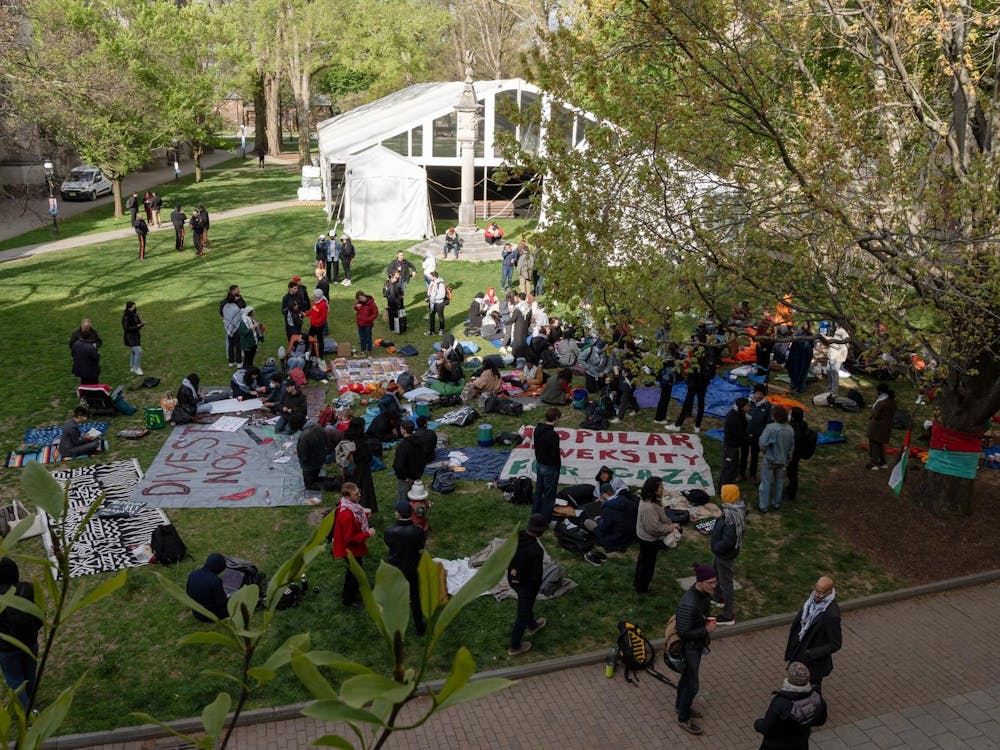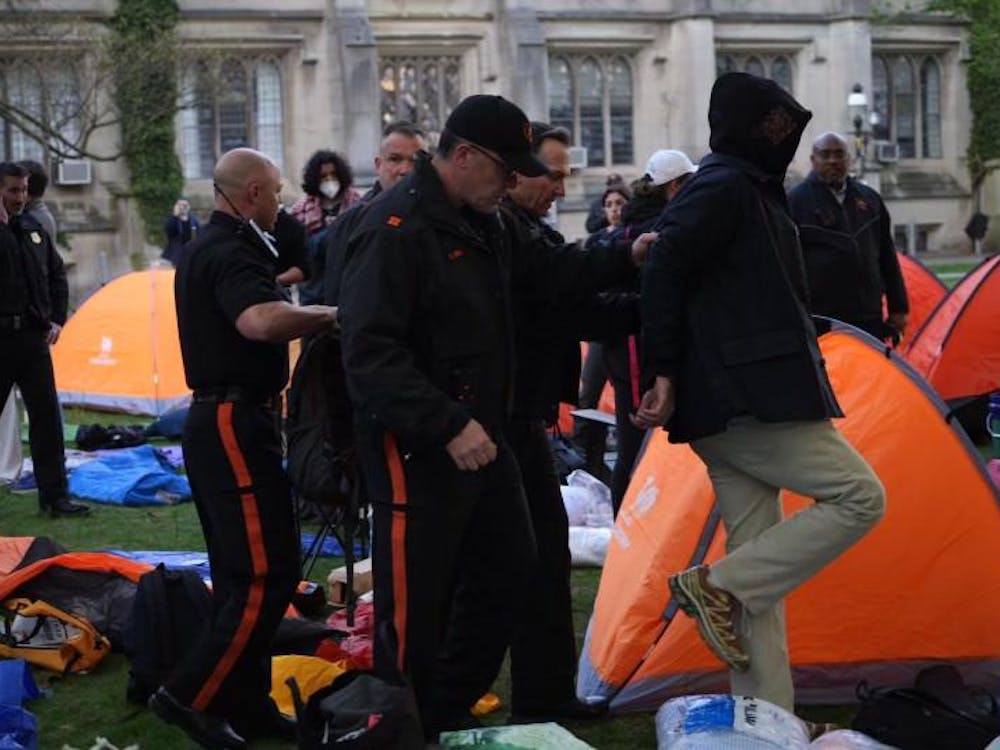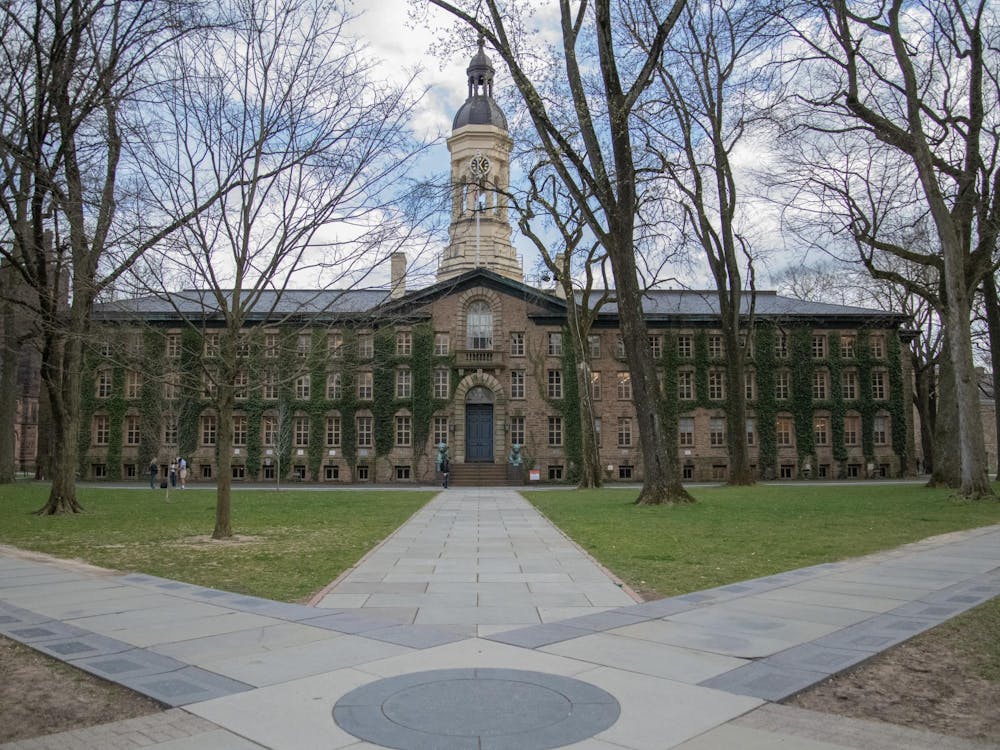Ramzie Fathy ’20 spent his first fall break in Dearborn, a suburb of Detroit, to learn about the refugee experience firsthand. He was part of a group of students to take part in Breakout Princeton, a Pace Center for Civic Engagement program of five student-led trips designed to engage participants with domestic social issues.
In addition to the Detroit trip, one trip explored how undocumented immigrants obtain adequate health care in Philadelphia; another learned about refugee resettlement in Buffalo, NY; another explored how transgender New Yorkers navigated the healthcare system; another learned about the effects of the Great Recession in Boston.
Fathy explained that he was planning on writing a news article after the trip, but stopped himself.
“What’s another news story going to do?” he asked. “When we went to talk to the refugees, they were afraid we were going to be news reporters. And they don’t want another news story.”
According to Fathy, news articles about refugees and the reality he saw while on Breakout were completely different.
“We don’t want your money. We don’t want your handouts. What we want is compassion,” he recalled a teenage Egyptian refugee telling him.
Fathy added that speaking to someone who went through the problems is quite different from reading an article.
“It’s that first hand experience that really makes a difference,” he explained.
Safa Syed ‘17, who led the Detroit trip — Resettling Refugees: Deconstructing a Complicated Narrative — along with Sarah Sakha ‘18, echoed Fathy’s realization.
“We don’t have any idea of what people go through until we hear it from them themselves,” she said. “To actually hear someone’s experience is so different. I think that’s what made going to this space so important to us.”
Sakha is an associate opinion editor for the ‘Prince’.

Austin Addison ‘18, who led a trip to Boston with Miranda Bolef ‘18 to learn about the Great Recession’s causes and consequences, said that the most powerful thing about the trip for him was hearing people who were affected by the issues say that the issues are problems for them.
“It definitely humanized the experience… I’m not just reading this in a textbook,” he added. “A lot of the times we would be learning about this stuff and someone on the street would know all about it. They didn’t have to do any research; it’s just something that they’re living. So it’s something that they know, intimately, and that’s a different experience than sitting in precept.”
Eliza Blades, the Pace Center’s Program Coordinator who serves as an adviser to the Breakout Princeton program, said that the success of the program entails hearing these stories of civic engagement.
“[Participants are seeing their dialogue with locals] as points of learning and expertise. Higher education isn’t the only place where you can gain knowledge about the world and about how to best approach these issues,” she said.
Syed noted that the 13 students on the refugee trip received many comments on the makeup of the participants: “gender, racial, ethnic, religious, major-wise: united around this one issue,” she added. All trips reported similar levels of multifaceted diversity.
Four participants on the trip spoke Arabic, which facilitated communication with the refugees, Fathy noted.
“There’s been a lot of bigotry and hate going around this election season, but [it’s exciting to] see students really dialoguing with people of all different faiths, socioeconomic backgrounds and statuses,” Blades added.
Having your school blown up, watching your neighbors be shot, getting a delivery of your relative’s cut-up body parts — these are some of the stories refugees told participants of the Detroit Breakout trip. After years of waiting, those who are allowed to enter the United States run into major difficulties. Resettlement agencies, for instance, give refugees a mere three month period to become self-sufficient.
“For those three months, they expect you to get enrolled in classes, social programs, to learn English,” Fathy explained.
Fathy, Syed, and Sakha all mentioned a 17-year-old Syrian refugee — originally from Iraq — who was struggling through the college process as a nonnative English speaker.
“We want to bring him to Princeton and let him speak and meet with people,” Fathy said, with the long-term goal of changing the University’s own admission process.
After identifying financial illiteracy as one of the causes of the Great Recession, Addison said that he wanted to educate his own community, University students.
“A lot of people don’t know how to buy a car, stay out of debt, or sign off for a mortgage,” he said.
He added that he wants to release a document to help with financial literacy “to make sure people aren’t being taken advantage of in the way we saw people being taking advantage of in Boston.”
Julie Chen ‘17, a participant on the Boston trip, described hearing about the vicious cycle that low-income individuals find themselves in.
“If they can’t pay off a debt, then they’ll have poor credit. And if they have poor credit, then they’ll have high interest rates,” she explained. She said these interest rates makes it more difficult to pay off the debt.
Syed said that people at the University could help come up with solutions to several of these social problems.
“We have so many brilliant minds at [the University]. Someone can come up with something to address part of the issue and alleviate some of that pain,” she added.
Sakha said that she had become “jaded” after years of seeing a disinterest community.
“The busyness excuse is the plague,” Sakha explained.
She added that when the University does have discussions on social issues, the dialogue is “divisive and antagonistic.”
“We shouldn’t be debating the issue. We should be talking about the humans behind it. These are people, like us; these are students,” Sakha said.
There is another round of trips taking place this spring.
Three of the trips, which will be announced later this month, will be all-freshmen. Other trips include “Becoming American: Navigating Culture and Identity in Immigrant Enclaves,” in New York City, “Transforming Tulsa: Philanthropy as a Vehicle for Social Change,” in Oklahoma, and “Institutional Approaches to Urban Drug Policy,” in Washington, D.C.








